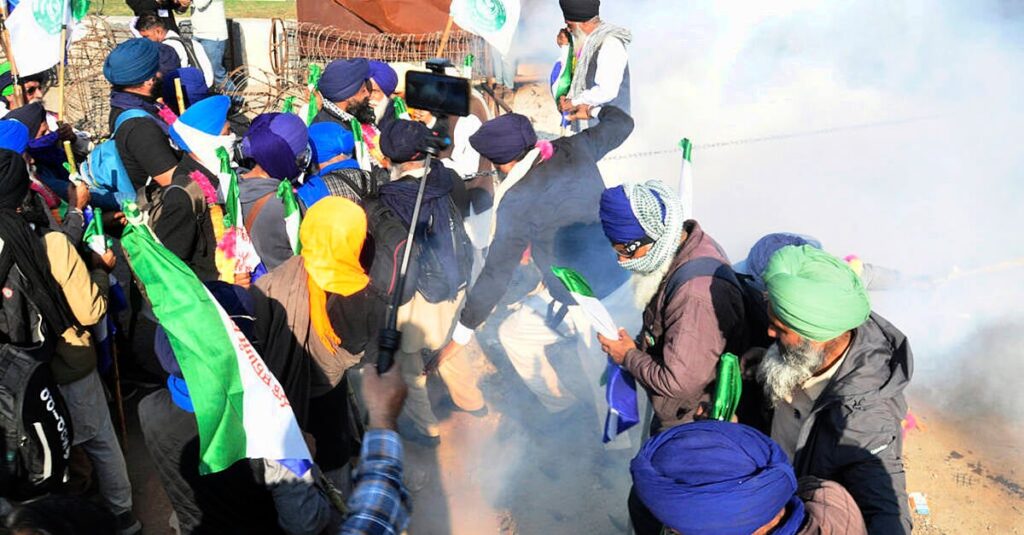Farmers camped on the border of India’s breadbasket state of Punjab since February have marched toward the capital. They are calling for higher prices for their crops as well as a debt waiver.
Dozens of Indian farmers marched toward the capital New Delhi on Friday demanding better crop prices, only to be faced by security tear gas and pepper spray.
Farmers had been camped outside the northwestern state of Punjab, considered a breadbasket for India, since February, when police halted their march.
What do we know about the protest?
Dozens of farmers revived their “March to Delhi” campaign, marching on Friday from Punjab along a key highway to Delhi. Protesters held blue and yellow flags.
Police set up heavy barricades of concrete blocks and lines of razor wire some 200 kilometers (125 miles) north of Delhi to stop the march in its tracks.
Some of the nearly 100 protesting farmers were able to break through part of the blockade before the police confronted them with teargas and pepper spray.
Indian authorities also suspended mobile internet services along the route of the procession and until December 9, under the pretext of stopping “the spread of misinformation and rumors.”
What do the farmers want?
Ahead of the march, farmers’ leader Sarwan Singh Pandher said that the protesters would advance as far as security forces allowed.
“We will be only around 100 people so it is not like we can break police barricades,” the Reuters news agency quoted Pandher as saying.
Apart from better pay for their crops, the farmers are demanding legal guarantees of more state support for crops and a debt waiver, as well as increased compensation for land acquired by the government several years ago.
“In February, we held four rounds of talks with the government but since then there have been no further discussions on our demands,” Pandher told reporters. “We want the government to let us exercise our democratic right to protest.”
Farmers in India have a level of political leverage due to their numbers, where more than half of the population of some 1.4 billion depend on agriculture for their livelihood.
In 2021, Prime Minister Narendra Modi’s government was forced to repeal some farm laws following a year-long farmers protest outside Delhi.


